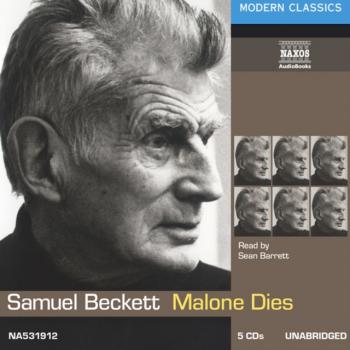Samuel Beckett
Список книг автора Samuel BeckettNohow On
The three pieces that comprise this volume are among the most delicate and disquieting of Samuel Beckett’s later prose. Each confined to a single consciousness in a closed space, these stories are a testament to the mind’s boundless expanse. In Company, a man—"one on his back in the dark"—hears a voice speak to him, describing significant moments from his lifetime, and yet these memories may be merely fables and figments invented for the sake of companionship. Ill Seen Ill Said tells of a solitary old woman who paces around a cabin, burdened by existence itself. And Worstword Ho explores a world devoid of rationality and purpose, containing the famous directive: «Try again. Fail Again. Fail Better.»The quintessential distillation of Beckett’s philosophy on human existence and the ultimate example of his minimalist approach to fiction, Nohow On is a vital collection, concerned with conception and perception, memory and imagination.
Three Novels
Few works of contemporary literature are so universally acclaimed as central to our understanding of the human experience as Nobel Prize winner Samuel Beckett’s famous trilogy. Molloy , the first of these masterpieces, appeared in French in 1951. It was followed seven months later by Malone Dies and two years later by The Unnamable . All three have been rendered into English by the author.
Murphy
Murphy, Samuel Beckett’s first published novel, is set in London and Dublin, during the first decades of the Irish Republic. The title character loves Celia in a “striking case of love requited” but must first establish himself in London before his intended bride will make the journey from Ireland to join him. Beckett comically describes the various schemes that Murphy employs to stretch his meager resources and the pastimes that he uses to fill the hours of his days. Eventually Murphy lands a job as a nurse at Magdalen Mental Mercyseat hospital, where he is drawn into the mad world of the patients which ends in a fateful game of chess. While grounded in the comedy and absurdity of much of daily life, Beckett’s work is also an early exploration of themes that recur throughout his entire body of work including sanity and insanity and the very meaning of life.
Mercier and Camier
Mercier and Camier, Beckett’s first postwar novel and his first in French, has been described as a forerunner of his most famous work, Waiting for Godot. Like the play, Mercier and Camier revolves around two wandering vagabonds. Their journey is described as relatively easy going, with no frontiers or seas to be crossed. The reader never knows where the journey starts or where it ends and the novel is less about the characters’ physical progress than their exchanges regarding the meaning of their journey, their goals, and life in general. One of Beckett’s more accessible works, Mercier and Camier is one of his early endeavors to experiment with structure and reimagine the novel as it had been known.
Ends and Odds
Ends and Odds brings together nine short dramatic works by the Nobel Prize-winning author of Waiting for Godot.
Endgame and Act Without Words
Samuel Beckett was awarded the Nobel Prize for Literature in 1969; his literary output of plays, novels, stories and poetry has earned him an uncontested place as one of the greatest writers of our time. Endgame , originally written in French and translated into English by Beckett himself, is considered by many critics to be his greatest single work. A pinnacle of Beckett’s characteristic raw minimalism, it is a pure and devastating distillation of the human essence in the face of approaching death.
Echo's Bones
In 1933, Chatto & Windus agreed to publish Samuel Beckett's More Pricks Than Kicks, a collection of ten interrelated stories—his first published work of fiction. At his editor's request, Beckett penned an additional story, «Echo's Bones», to serve as the final piece. However, he’d already killed off several of the characters—including the protagonist, Belacqua—throughout the book, and had to resurrect them from the dead. The story was politely rejected by his editor, as it was considered too imaginatively playful, too allusive, and too undisciplined—qualities now recognized as quintessentially Beckett. As a result, «Echo's Bones» (not to be confused with the poem and collection of poems of the same title) remained unpublished—until now, nearly eight decades later.This little-known text is introduced by the preeminent Beckett scholar, Dr. Mark Nixon, who situates the work in terms of its biographical context and textual references, examining how it is a vital link in the evolution of Beckett's early work. Beckett confessed that he included «all I knew» in the story. It harnesses an immense range of subjects: science, philosophy, religion, literature; combining fairy tales, gothic dreams, and classical myth. This posthumous publication marks the unexpected and highly exciting return of a literary legend.
First Love and Other Shorts
'First Love', a man's musings about his youth occasioned by his visit to his father's grave, was first written by Samuel Beckett in French in 1945, but it wasn't until 1973 that he completed this the English translation.








